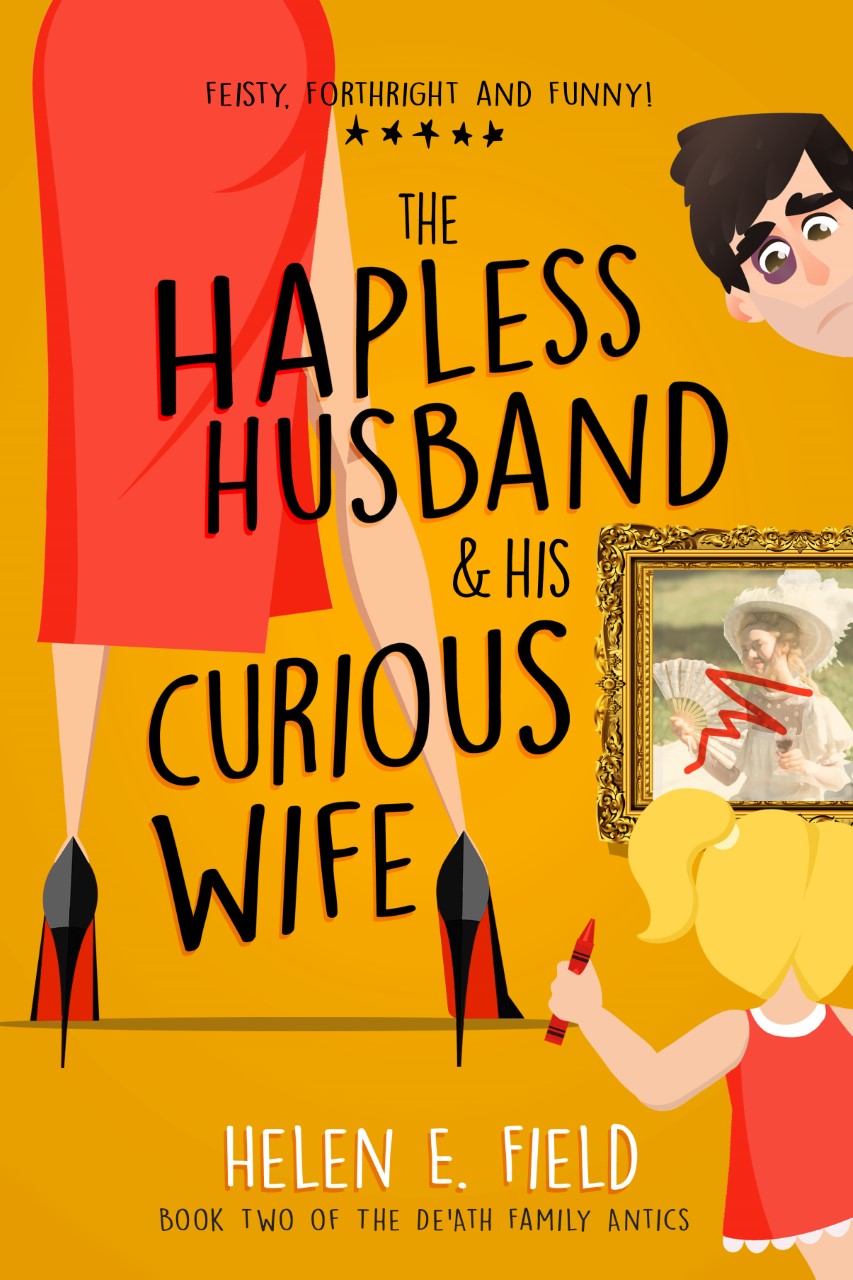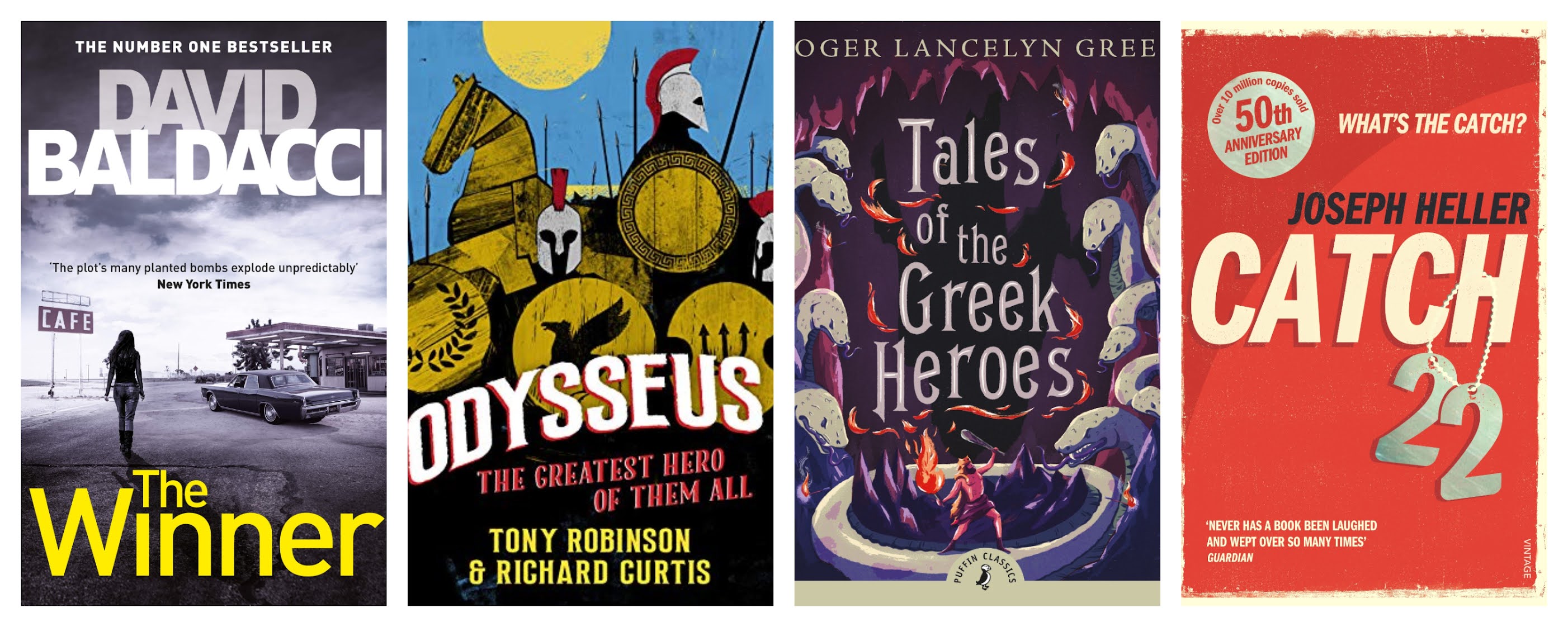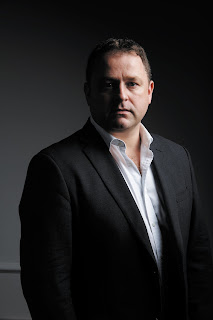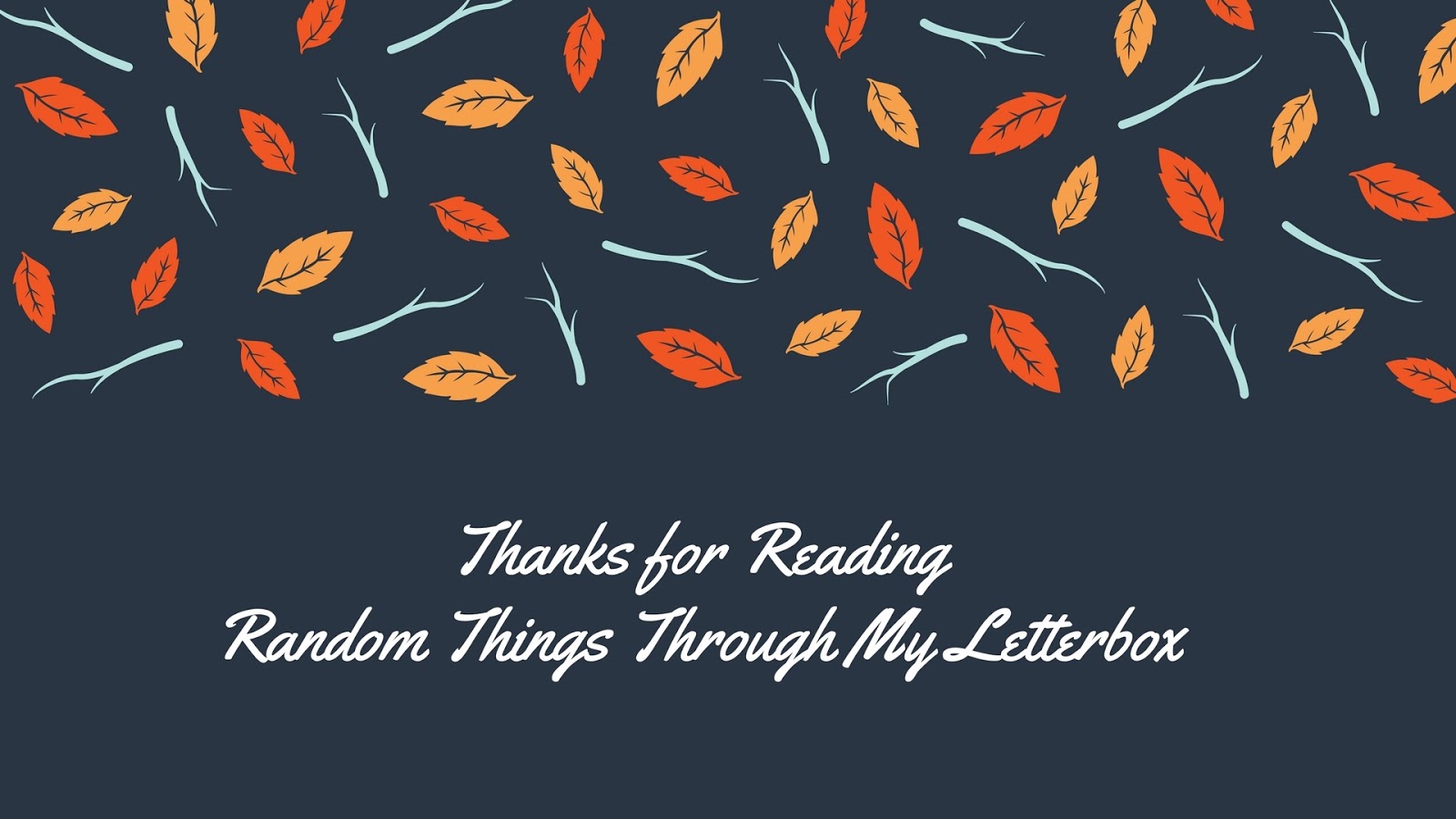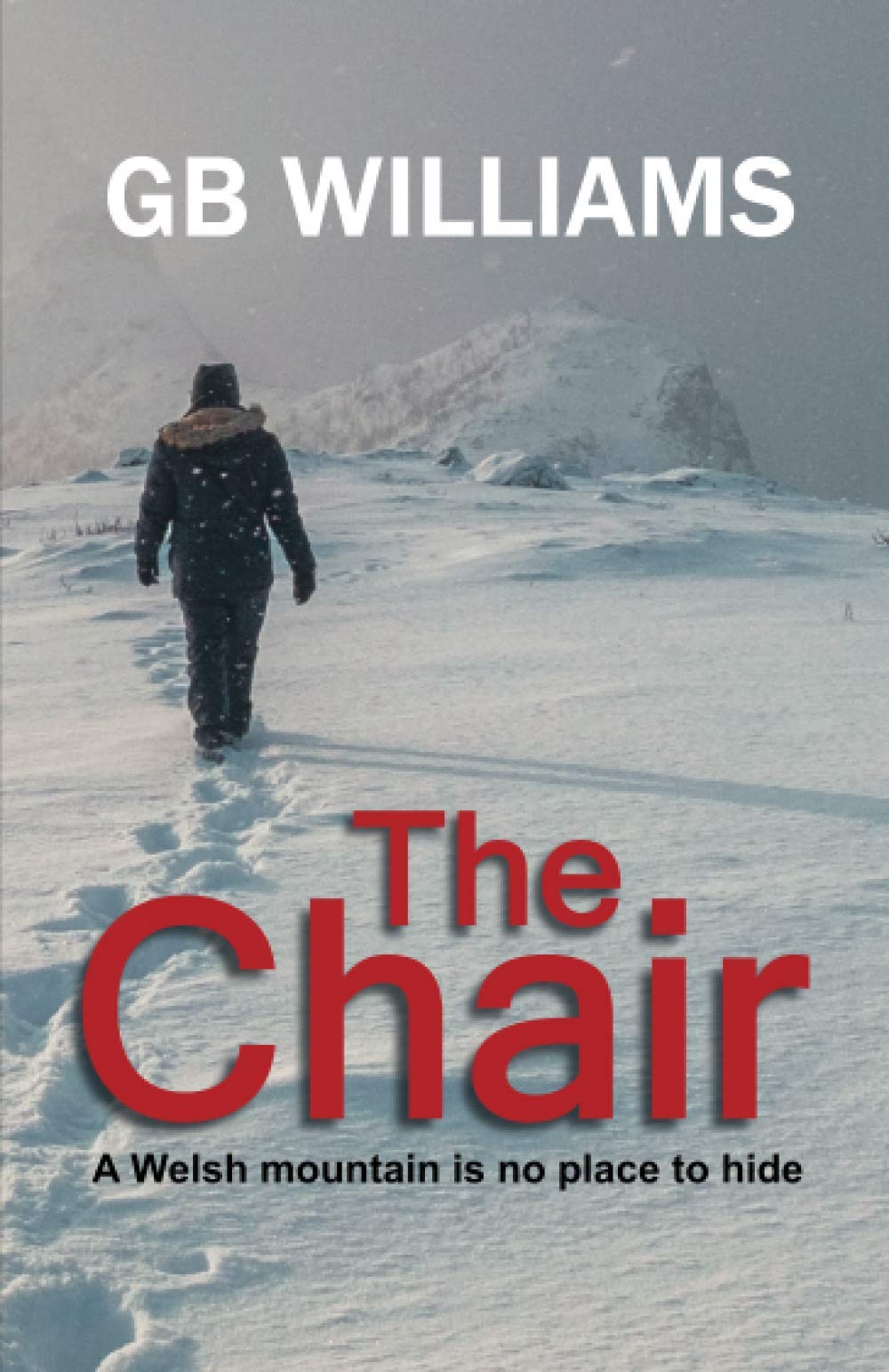Anyone who has ever seen or heard me interviewed knew that this one would be first. It is not going too far to suggest that, but for this incredible 1990’s thriller, I would not be a writer today.
I read The Winner was I was 18 years old, shortly before heading off to University. Before laying my hands on this book I had no idea that there even was a thriller genre, let alone that the best of it could paint movies in my mind. As far as novels were concerned, I read what I was told to read by my English literature tutors. And I’m not going to lie, I just could not see what all the fuss was about. Wuthering Heights? Emma? Brave New World? Not for me, I’m afraid. And so I stuck to history and to religion and to mythology and I let the TV screen and the cinema do my entertaining,
Until, that is, I was given The Winner. I began it with a sneer. An expectation that I would not enjoy it and a determination to tell my uncle so (it was my uncle who had insisted I use it to broaden my horizons). Five pages in and I was sold. Ten more and I was hooked. I ended it within two days. Four more and I’d read everything Baldacci had written to that point.
And the rest, as they say, is history, because here I am today, doing my damnedest to be ‘The British Baldacci’. Living proof that if you find the right books, the love affair never ends.
(By the way, I don’t intend to say a single word about the plot of The Winner. Nor should you read the summary on the back. Just buy it and read it, spoiler free. You will not be disappointed.)
The book that could have started my reading habit eight years early, if only I had not found myself down a different rabbit-hole altogether.
Published in 1988, I was a ten year-old with a Superman obsession when - on our first primary school sleep away trip - I borrowed what looked almost like a book-sized comic book from a classmate. I was quickly entranced. The stories of Odysseus, of Achilles, of Agamemnon, of Helen and Paris and Hector. It was all there, told with a brilliant sense of humour and in a language a ten-year old who lived in his own head could intimately understand. It was as if I was discovering a new Universe to rival DC’s (and one which immediately overtook Marvel’s; like I said…Superman!).
Even now I look back on the hours I spent with that book, learning everything I could about the Trojan War and the stories from Homer and Tryphiodorus and Virgil. I of course had no idea that was what I was doing; I thought I was reading funny stories in funny books about ancient superheroes and their adventures. But it began a lifelong fascination - at one point, dare I say, an obsession - with mythology from around the world. And it was this obsession, I know realise, which took my attention away from the thrillers I could have been reading.
Still, everything happens for a reason. Maybe if I’d started too young, I would have fallen out of love too soon.
Tales of the Greek Heroes. Myths of the Norsemen. The Tale of Troy. Tales of Ancient Egypt. The Adventures of Robin Hood. King Arthur and his Knights of the Round Table.
The complete works of Roger Lancelyn-Green make up over 40 books, all of them on the subject of myths and legends arising from European and in once case African culture, and it would not be putting it too highly to say that - from age 10 to 16 - they were basically all of the ‘fiction’ I chose to read.
Written in a style that never once patronised, they were immediately accessible to a young mind while being utterly respectful of that mind’s capability. I shamefully know little of the author’s life, save to say that he was an all-time loss to education; with the ability to communicate such deeply complex and emotional tales to children, he would have made the greatest teacher who ever lived.
And to me he probably was that, because it is hard to know what I did not learn from his stories. The tales themselves, sure. But so much more besides. These were, after all, the bible tales of various cultures. The lessons by which whole races of ancient men and women lived their lives. And here the author was, recounting those same lessons to any young man lucky enough to pick up his books. That’s not to say they were not edited, of course. The sex was glossed over. The sodomy erased entirely. And the blood and the murder and the suffering…no, that was still there; it’s funny what the world thinks a kid should and should not see!
The writer I am today - let’s be honest, the man I am - owes more to these books than even I will ever realise. And I cannot recommend them enough.
Finally, I hear you cry. Some literature!!
It’s not crime, it’s not a thriller, and yet it is probably my favourite novel of all time. I first read Catch-22 when I was at Bar School, aged 21. Almost ironic, but not quite! By this time I was fully immersed in the likes of John Grisham and James Patterson and Lee Child, but occasionally the old feeling of shame would kick in and I’d endure a classic.
They were experiments which usually ended badly, and never with the few minutes of fun you get in between trying a new drink and then discovering your stomach doesn’t agree with your taste buds. Time and again I tried. Time and again I failed.
And then I met John Yossarian. Never have I read a book that so effortlessly mixes death, suffering, fear, madness and laugh out loud humour. Honestly, the times I found myself bursting into laughter on a packed Central Line tube. They must have thought a lunatic was on their carriage.
I recommend Catch 22 to anyone with time to immerse themselves in a flat-out reading experience. Every character is so alive (until the point that they are not). Every chapter is a masterpiece. Every image is expertly - even visually - rendered. Now why can’t they make a decent film out of it!?
The grandaddy of all political action thrillers. The true masterpiece of on the page tension. The very best of the best. And all of that from a b***dy debut!? Just how are the rest of us supposed to live up to that?
As with The Winner, I flat out refuse to even touch upon the plot of this novel. And that’s despite the fact that even those who have not read the book or seen the truly wonderful film adaption (Fox, not Willis!) will probably still know it anyway. If you don’t know what happens, go read the book. If you do know what happens, go read the book. And if you’ve already read the book - be that once or one hundred times - go read the book. Only good things can ever come from reading this book.
And besides, who cares about the plot anyway!? At the risk of ex-communication, there is literally nothing exceptional about the plot of the greatest thriller ever written. There is almost nothing in the story that we had not seen before. And that does not matter one iota, because delivery is everything and no one has ever delivered as Frederick Forsyth did when he wrote his first book.
Do I really need to say anything more!?
This one is a cheat, I’m afraid, because I’m choosing the complete set of ‘The Flashman Papers’ rather than just a single book. Although even as I type this I realise that I already did the same with The Complete Works of Roger Lancelyn-Green, so I guess I’ve already set a precedent. And besides, no one told me the rules!
This is not, of course, to say that each of the books is as good as the next. The series starts incredibly well - ‘like watching a new star appear in the night sky’ was what one critic said about the stunning debut, entitled simply ‘Flashman’ - and somehow it gets better, with ‘Flashman at the Charge’ and ‘Flashman and the Great Game’ particular high points (I would add ‘Flashman and the Redskins’, but unfortunately both the title and the subject matter are problematic to those who no longer seek to understand nuance or context, which in 2021 is A LOT of people…). It also ends with rather a whimper, with both ‘Flashman’s Tiger' and ‘Flashman on the March’ showing signs of genius on the wane. But the series as a whole is a thing of beauty and that is how it should be read.
In my humble opinion ‘The Flashman Papers’ has a claim to be the best historical fiction series ever written. It has its challengers, of course. Patrick O’Brian’s Aubrey-Maturin series kept its quality for far longer. Cornwall’s Sharpe series was more accessible, although I think his Warlord Trilogy was his best work. And of course these days we have brilliant contenders such as Abir Mukherjee’s Wyndham and Banerjee series and Laura Shepherd-Robinson’s ‘Blood and Sugar' and ‘Daughters of Night’. All brilliant. All books I would love to have the talent to write.
But for me, for now and in spite of teeming with politically incorrect moments that would see him cancelled in a heartbeat if he were writing today, MacDonald-Fraser stays at the top. The very idea of taking a hated fictional character from a recognised classic and building a history around him that encompasses practically all of the great events of the 19th Century? Exceptional. But to then do it as well as George MacDonald Fraser did? That’s just genius.
And on that note - with six established authors and/or series called out - I am going to depart from the exercise just a little and take this opportunity to recommend what I think are respectively the best new book and the best new series of the past year. Because when all is said and done, reading is as much about discovering and enjoying something new as it is about celebrating what has already been done so well. And these, I believe, will one day be looked at as true classics of the genre.
The best book I have read in a long time - certainly since pre-lockdown - and that’s not just because Imran is a fellow barrister. Personally I would love to lay claim to the title of ‘most talented writer with a wig’, but with I Know What I Saw I am confident that Imran has it sewn up.
A truly stunning achievement, I Know What I Saw follows the former uber-high achiever Xander Shute, an ex-banker fallen on hard times and now living on the streets. Shute witnesses a violent crime in a home he has crept into for the night, only to then discover that what he saw seemingly could not have occurred. What follows is a treatise on memory, on perception and on mental health, expertly - dare I even say poetically? - written, brilliantly constructed and just utterly unique.
I wish I could write that this man. I’ll just have to settle for being taller.
Earlier this year I received a proof copy of a book by Neil Lancaster, author of the Tom Novak series. I knew upon arrival that it was not a fourth Novak; Neil is a good friend of mine and he had told me he was writing something new. And so I suspected when I picked up my proof that I was in for a treat.
I was right. Oh boy was I right.
I have long been a fan of the Novak books. A brilliant creation, Novak called back to Neil’s time as an undercover police surveillance specialist and the military experience shared throughout his family, to deliver fast-paced, complex thrillers that were hard to put down. But with Dead Man’s Grave, Neil took his writing and his storytelling to the next level. The jump in quality from his excellent first series to his truly exceptional second was nothing short of tremendous.
As ever, I will not spoil the story by going into the plot. Do yourself a favour and do the same; ignore the longer reviews, ignore the blurbs, ignore the summaries. Read it cold and prepare to be blown away as you meet Max Cragie and his team, in what Ian Rankin has described as ‘Jack Reacher fronting Line of Duty.’
Ever an over-achiever, Neil has already delivered books two and three in the series and I started the second - ‘The Blood Tide’ - literally today. I am forty pages in and I can already say with complete confidence that this really is the best new series on sale today.
Buy Dead Man’s Grave and read it, safe in the knowledge that the next one is coming your way very, very soon.
Tony Kent - November 2021

